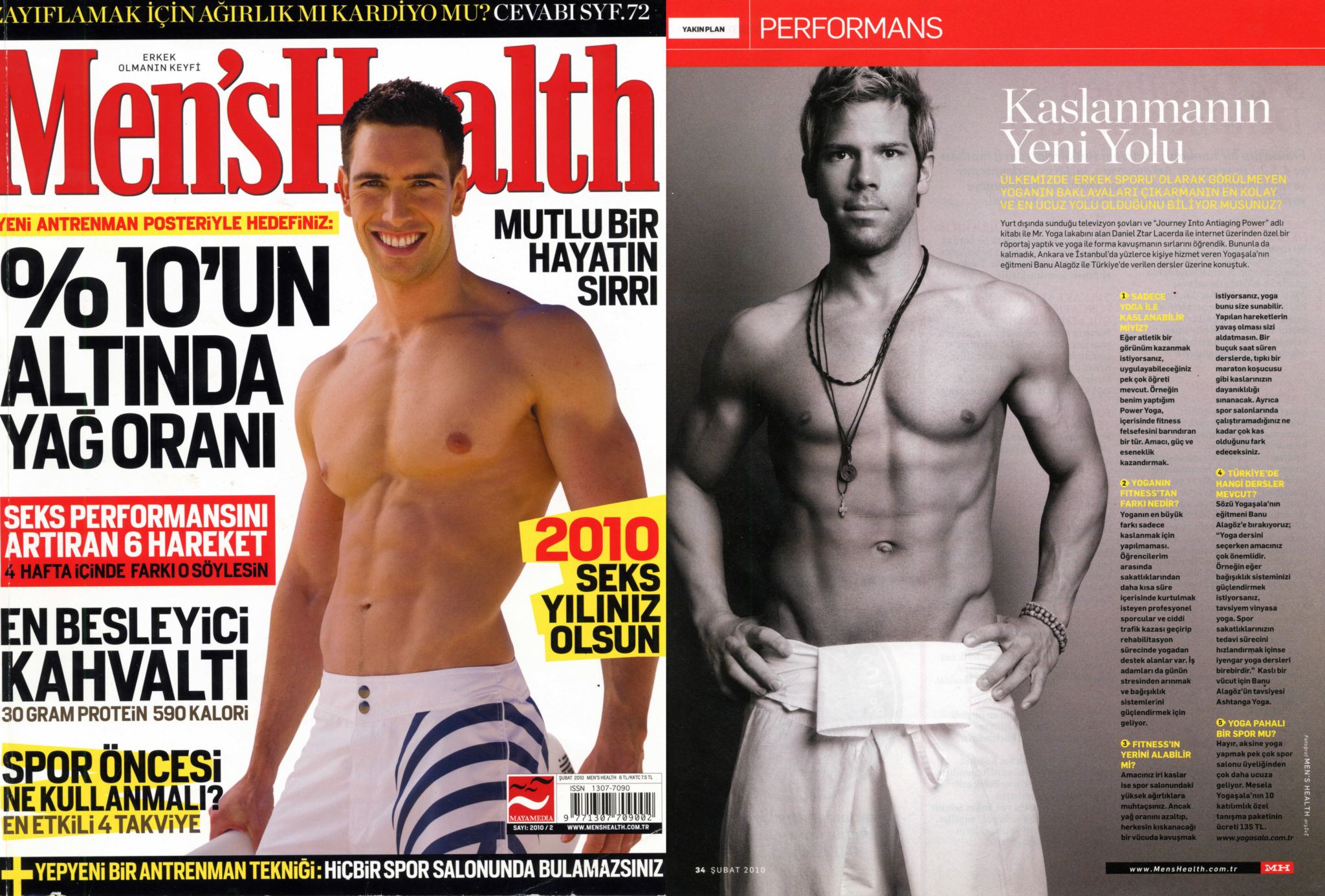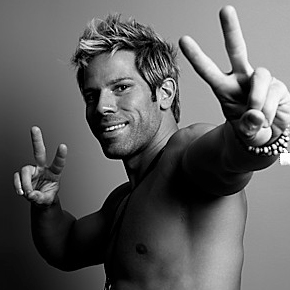1. What are the biggest benefits of yoga?
Yoga has many amazing benefits. For athletes, it can boost performance and reduce the risk of injury. It can help reduce stress and boost the immune system, reducing the number of sick days you may have to take off of work. For those who have been in seriously injured, yoga can be used a part of a rehabilitation program, bringing you back to your original (or even better) shape. And for those seeking spiritual enlightenment, yoga provides a path. In fact, for me the most striking benefit of yoga is, hands down, the way it has changed my way of life.
When I practice, I think of myself as a “yoga warrior.” Yoga has provided me with intense spiritual and physical discipline, teaching me to harness the power of body and mind. It has also taught me that it is much harder, but much more rewarding, to conquer yourself than to conquer a thousand other people. Ultimately, it has inspired me to be a better person today than I was yesterday and I now face life and death with equal calm and resolve.
Yoga can be a powerful tool for self-transformation. I teach my students to venture outside their comfort zone to overcome challenges while maintaining a sense of peace and calm. For example, I often ask my students to attempt 7 headstands, an exercise that I find builds courage and confidence; qualities that can be carried off the yoga mat into everyday life. Being open and courageous enough to try new things in yoga is a compelling means of affecting real change in your life.
2.Can I transform my body practicing yoga poses?
Yes, yoga will improve your physique. It will make you stronger and more flexible. It will help to improve bone strength and posture. And, it will help you achieve relaxation and an overall sense of well-being. Yoga has been around for 5,000 years and many different variations have come into practice during that time. There is an incredibly wide spectrum of yoga styles – some that borrow elements from different areas of fitness and some that focus on breathing and meditative exercises. Yoga is both a spiritual and often physically demanding practice Among the 2,100 included in our new book, you can expect everything from the gentle to the intense. What’s important to remember is that there is a style of yoga that’s right for every type of person in every season of life.
3. How long does it take to learn the asanas? Can I start right away?
You can do yoga right away. It doesn’t matter how stiff or out of share you think you are. Every pose can be broken down in a way that can work for you wherever you are on your yoga path, from the most basic to the most advanced. It’s important not to rush. Start slowly with only the most basic poses and move on to something more complicated only after you’re able to perform the more basic poses with confidence and ease.
4. Are there different types of yoga? What do you suggest to someone who is a complete stranger to that world?
There are many schools of yoga. Some of the most popular include Iyengar Yoga, Vini Yoga, and Hot Yoga. The good news is that fitness clubs and yoga studios know this, so a variety of classes are offered to cater to people with very diverse needs. You don’t have to research all the different types of yoga in order to find out which is right for you. Give a fitness club a call or visit a yoga studio and tell them what your current needs are. Be sure to inform them of any injuries or limitations you may have, and also what kind of experience you want (spiritual, gentle restorative, and/or an intense workout). You can usually try a class for free before deciding to join.
For someone who is a complete stranger to the yoga world, in order to make the most of your first yoga experience, you will have to let go of your ego and know that everyone else in the room is focused in their own practice. The yoga journey you take is your own; you are not in competition with anyone else. My yoga classes are filled with some of the most genuine and caring people and while you may feel a bit awkward at first, everyone is there in complete support of one another. During your first class, you may feel like a fish out of water. Embrace this feeling and know that it is for the beginning of true spiritual and physical growth! Doing yoga for the first time is like learning how to dance. You first learn the awkward mechanics of how to move your body and after a few classes you start to get the poses. Eventually, you will feel life’s rhythm flowing through you while you. Yoga is meditation in motion.
Whatever your motive is for coming to your first class, I know that once you experience yoga first-hand, you will be captivated by the feeling of openness that other types of fitness don’t offer.
5. Can yoga take the place of fitness? Or do we still need cardio and/or free weight sessions?
Yes, yoga can take the place of your regular fitness regime if it covers the three components of fitness (anaerobic, aerobic, & flexibility). There are enough poses that can take a lifetime to master. Variety is the spice of life, so I would recommend adding yoga to complement the other activities you do (sports, sex, work, and spirituality).
Most gyms already offer a variety of yoga classes so you shouldn’t have to cancel your gym contract. Yoga can have far-reaching results if you are open to it. It has changed my life from the inside out and I hope that it changes yours in similar ways.
6. What is your training style and philosophy?
You are a work of art in constant progress. Put this into practice everyday. Avoid doing anything half heartedly. If your are going to do something, get it done to the best of your ability, no excuses.
7. What advice would you give to your clients or peers to stay on track?
Hold yourself 100% accountable. No excuses!
8. What advice do you give to those new to yoga to help them stay on track to reach their individual yoga goals?
Make sure your goals are rooted in something you are truly passionate about. Having an intellectual understanding of your goal is not enough. Passion and clarity will supply enough emotional fuel to make it to the finish line. Visuals (like the photos in this book!) and videos create a stronger impression in your mind. You need to condition and fine tune your mind even more than your body since everything you say and do comes from this source. Consistency, taking daily action, is key. Make a promise to yourself and honor it. Integrity, honor and self-restraint are codes of conduct in an authentic yoga practice and are rarely found in today’s world. They have been replaced with instant gratification, lack of restraint, and selfishness.
9. What is your definition of health?
The abundance and balance of physical energy, positive emotional and mental energy, mixed in with a zest for life. Body and mind are interconnected. If you negate one both will suffer. Physical exercise (anaerobic, aerobic, & flexibility), correct nutritional intake, proper amount of rest/recuperation, stress reduction management skills play a part. Another important question to ask is how “healthy” is your relationship with yourself and others? Many think that looking the part of a fitness model equals great optimum health. Unfortunately this is not true. I have seen first hand that there is a great deal of eating disorders and unhealthy methods, including fat burners and diuretics) used to attain a “perfect” media-generated look. If you look great in the mirror but hate how you feel, you may need to ask yourself “what is really the definition of health?”
10. What is your definition of beauty?
Thoughts, words and actions that come from a place of selflessness.



